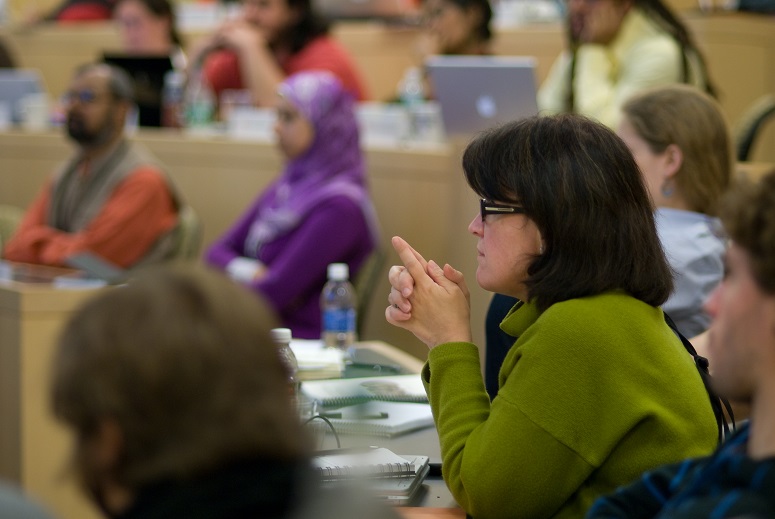Syria: Support for nonviolent fighters key to ending the war
James Lawson Institute
This is a legacy page for the James Lawson Institute (JLI), which ICNC organized in 2013 and 2014.
ICNC organized and ran the James Lawson Institute in 2013 and 2014 as an eight-day program for North American activists and organizers dedicated to sharing knowledge of movement organizing and civil resistance. You can learn more about its process of development here. Following tremendous success with ICNC’s incubation, the James Lawson Institute launched as an independent entity in 2017 offering intensive study of civil resistance to activists in the North American context. Information about the James Lawson Institute and its programs can be found here.
Below is the announcement of the 2014 JLI, organized by ICNC.
The James Lawson Institute:
An Eight-Day Experience in Strategic Evaluation of Nonviolent Civil Resistance
August 16-23, 2014 | Nashville, Tennessee
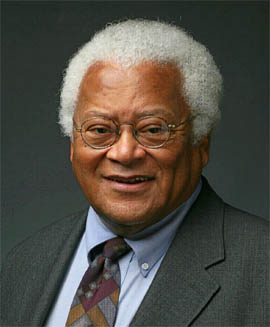 In the 1960s, the Reverend James Lawson organized and led one of the most effective campaigns of nonviolent civil resistance in the 20th century: the Nashville lunch counter sit-ins for the US Civil Rights Movement. In the years that followed he was involved in strategic planning of numerous other major campaigns and actions and was called “the mind of the movement” and “the leading theorist and strategist of nonviolence in the world” by Dr. Martin Luther King, Jr.
In the 1960s, the Reverend James Lawson organized and led one of the most effective campaigns of nonviolent civil resistance in the 20th century: the Nashville lunch counter sit-ins for the US Civil Rights Movement. In the years that followed he was involved in strategic planning of numerous other major campaigns and actions and was called “the mind of the movement” and “the leading theorist and strategist of nonviolence in the world” by Dr. Martin Luther King, Jr.
The US Civil Rights movement, the US Labor movement in the 1930s, the women’s suffrage movement, the anti-nuclear movement, and other move ments in North America and abroad in the decades since did not just engage in activism. They organized people, mobilized them by the millions, and galvanized participation from a broad cross section of society. Collectively, these movements provide a model for how nonviolent change can be organized to win rights, justice and change in very adverse conditions.
ments in North America and abroad in the decades since did not just engage in activism. They organized people, mobilized them by the millions, and galvanized participation from a broad cross section of society. Collectively, these movements provide a model for how nonviolent change can be organized to win rights, justice and change in very adverse conditions.
The James Lawson Institute (JLI) looks at these past movements, and numerous contemporary ones around the world, from a strategic perspective, and engages participants in depth about a wide variety of aspects of organizing and activism in North America. It is a structured seminar to discuss what kinds of strategies, tactics and practices are effective for people organizing movements and waging civil resistance campaigns.
TOPICS COVERED:
Topics to be discussed include:
- The Current State of North American Organizing and Activism
- The Core Dynamics of Nonviolent Civil Resistance
- Movement Formation, Sustainability, and Coalition Building
- Strategy, Tactics, and Planning
- Movement Language and Media
- Managing Repression, Radical Flanks, and Maintaining Nonviolent Discipline
The content is a mixture of theory and practice and is based on the experiences of numerous activists and organizers around the world as well as leading scholarship in the field of social movement and civil resistance. The daily schedule usually includes two presentations and two exercises, as well as an evening program. We will learn from case studies, theoretical frameworks, participant exercises, planning tools, academic research, and each other.
Sessions will be facilitated by James Lawson and the advisors and staff of the International Center on Nonviolent Conflict (ICNC).
APPLICATIONS:
Who Should Apply: North American organizers and activists who are working to organize within the United States or Canada.
The educational environment of the Institute will be rigorous, and we encourage participants to apply who want to share, learn, and work hard for the full eight days. Also, at least half of the learning during the week will draw from participants’ experiences and insights so a good base of field work and/or study in grassroots organizing, movement building, campaign organizing, nonviolent civil resistance, media work, or related areas will be very helpful.
The original application deadline of April 13, 2014 has now been extended to April 20, 2014. No applications will be accepted after April 20, 2014.
You can stay up to date with all the news on the James Lawson Institute (JLI) 2014 on our Facebook page and Twitter feed. You can view the JLI 2014 flyer here. If you have any questions, or would like to request a paper application, please send an email to jli@nonviolent-conflict.org .
When: August 16-23, 2014
Where: Scarritt Bennett Center, Nashville,Tennessee
COST AND SCHOLARSHIPS:
Registration fees for participants are as follows:
$500 – Individuals employed by media, commercial or government organizations
$350 – Individuals with large nonprofit organizations and foundations
$200 – Individuals with local nonprofit and educational organizations
$100 – Organizers, activists and individuals not institutionally affiliated
The JLI registration fee is the only charge requested. Accommodation, all meals, and learning materials for the entire course are paid by the International Center on Nonviolent Conflict (ICNC). Accommodation is in the dormitories at the Scarritt Bennett Center and meals are arranged through the Scarritt Bennett Center.
In addition to the JLI registration fee, participants or their sponsoring organizations are expected to cover their own travel expenses to and from Nashville, Tennessee. However, if an applicant or sponsoring organization cannot afford to pay for travel and/or registration costs, need-based scholarships are available and can be applied for in your JLI application.
Learn more about Rev. James Lawson and nonviolent civil resistance:
“‘A Totally Moral Man'”: The Life of Nonviolent Organizer Rev. James Lawson” by Peter Dreier, Truthout.org, August 15, 2012
ICNC Special Report Series
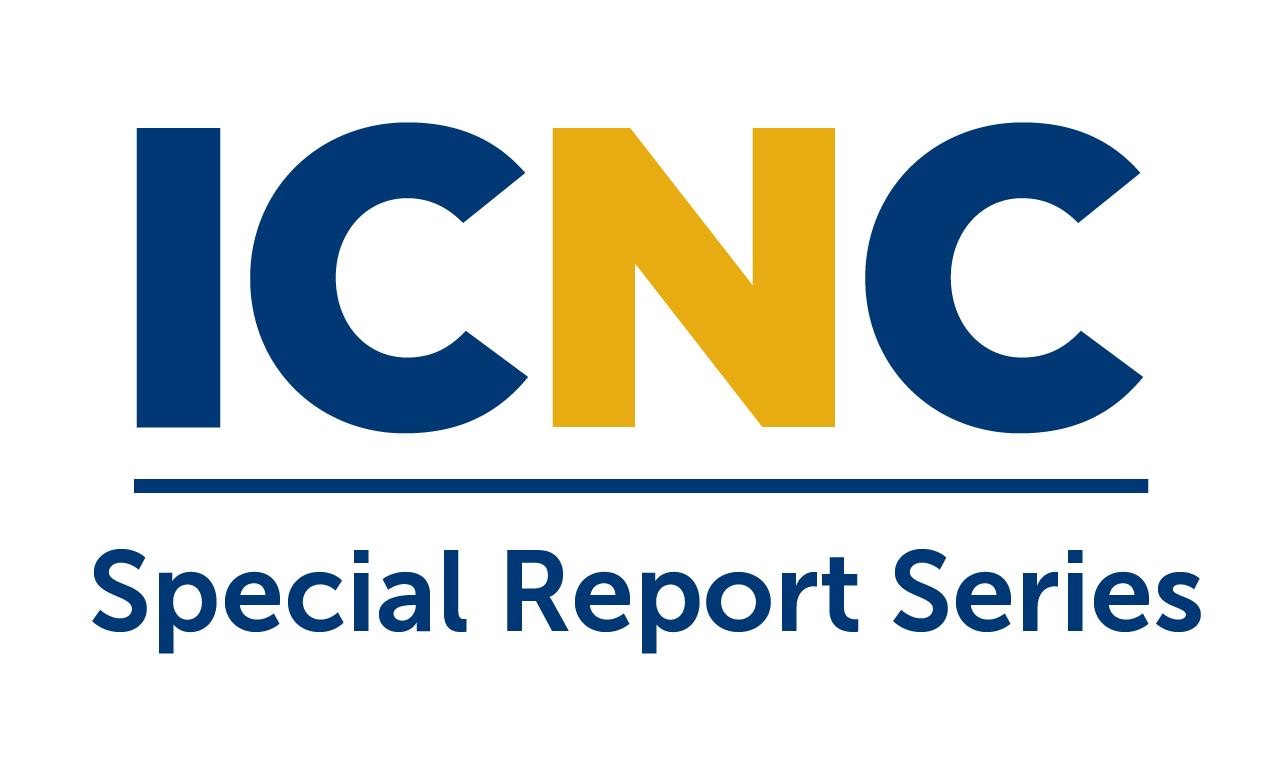 Launched in 2017, ICNC’s Special Report Series aims to bridge the gap between academic, policy and other practitioner communities. ICNC Special Reports draw on cutting-edge research to cover topics pertinent to the ongoing policy discussions and practitioners’ debates around issues relevant to civil resistance movements, grassroots campaigns and nonviolent struggles taking place around the world.
Launched in 2017, ICNC’s Special Report Series aims to bridge the gap between academic, policy and other practitioner communities. ICNC Special Reports draw on cutting-edge research to cover topics pertinent to the ongoing policy discussions and practitioners’ debates around issues relevant to civil resistance movements, grassroots campaigns and nonviolent struggles taking place around the world.
Published Reports
Powering to Peace: Integrated Civil Resistance and Peacebuilding Strategies
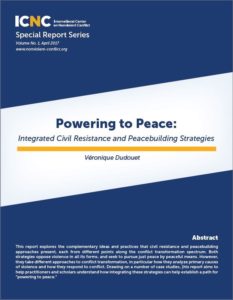 By: Véronique Dudouet
By: Véronique Dudouet
Date of publication: April 2017 (44 pages)
Series Editor: Maciej Bartkowski, Senior Director for Education and Research
Volume Editor: Amber French, Manager of Editorial Initiatives
This report explores the complementary ideas and practices that civil resistance and peacebuilding approaches present, each from different points along the conflict transformation spectrum. Both strategies oppose violence in all its forms, and seek to pursue just peace by peaceful means. However, they take different approaches to conflict transformation, both in their analyses of the primary causes of violence and how they respond to conflict. The report then describes how civil resistance and peacebuilding can work in tandem throughout the four stages of transformation of asymmetric conflicts. Concrete examples are provided to illustrate the respective functions of constructive conflict (through civil resistance) and conflict mitigation (through peacebuilding) in transitions from latent to overt conflict, from resistance to dialogue and negotiation, and from conflict settlement to sustainable peace.
Download free PDF
Buy the book
Forthcoming Special Reports
ICNC is excited to announce a forthcoming special report by Erica Chenoweth and Evan Perkoski entitled “Nonviolent Resistance & the Prevention of Mass Atrocities in Popular Uprisings.” The report is expected to be released in the ICNC Special Report Series in late fall 2017.
Abstract
Since the Arab Spring, states, civilians, and many nongovernmental organizations have watched as contentious events play out across the globe. Many wondered how these events would unfold, which would succeed, and just as significantly, whether those contesting power would come to be victimized by the very governments they were protesting against. In this report we seek to understand why some popular uprisings experience mass killings and others do not. In particular, we focus in on the characteristics of violent and nonviolent uprisings to better understand the types of contentious events that are most likely to elicit government crackdowns. Analyzing new data on state violence and popular uprisings from 1955 to 2013, we find that mass killings are associated with particular country and regime characteristic. Preexisting subgroup discrimination and certain types of authoritarian regimes, for instance, are important predictors of governmental violence. Yet, characteristics of popular uprisings are significant as well. Not every uprising is equally threatening to regime elites, and some – like violent movements with foreign support – are much more likely to elicit mass killings than others. In turn, nonviolent resistance, though oftentimes constituting an even greater challenge to oppressive regimes than armed struggle, tends to also decrease the likelihood of mass atrocities. These findings therefore have important implications for policymakers seeking to prevent mass atrocities, and for activists seeking to stay safe in the course of a popular uprising.
Nonviolent Action and the “New Story”: Completing the Circle for an Unstoppable Movement
This webinar occurred on Thursday, June 22, 2017 from 12-1 p.m. EST.
Watch the webinar:
Webinar summary:
We are in the throes of a “paradigm shift” from an “old story” of materialism and separateness, in which competition and violence are inevitable, to a “new story” drawing on both new scientific understandings and ancient wisdom traditions that value nonviolence. In this new story, we can see again that we are deeply connected to one another and the natural world, and that the kind of nonviolent and just society Martin Luther King called the “Beloved Community” is not just desirable, but possible. This growing view, promoted by thought leaders like Thomas Berry and Joanna Macy, encourages a “Great Turning” in how we see and engage the world, and it does so at a level deeper than just rational argument. It aims, as Gandhi said, to “move the heart also.”
At the same time, nonviolent action and civil resistance are spreading rapidly around the world and new strategies with innovative tactics, newly empowered communities, new institutions, and new victories for justice, freedom, and rights are being won in ways that the old story would say is impossible.
In this webinar, we will discuss why the times are propitious for a vital change in the cultural stories we tell ourselves and will explore the role of nonviolent action in both completing the story and getting it accepted.
This connection is too often neglected. Currently, the social theorists working on the new story know little about nonviolent social change movements. Many nonviolent movement organizers and theorists do not pay much attention to either the new story or the underlying cultural assumptions that support or hinder movements for social change. What could be accomplished if both efforts realized their overlap and connection to each other? We are ready for a breakthrough!
Presenter:
 Professor Michael Nagler is the founder and president of The Metta Center for Nonviolence. He also serves as the co-host of Nonviolence Radio, which airs every other Friday on KWMR FM radio, which you can subscribe to via iTunes or Stitcher. In addition, Nagler is editor of Daily Metta, a daily reflection on Gandhi’s words which you can find at this link. He is also the author of The Search for a Nonviolent Future and The Nonviolence Handbook, among other works.
Professor Michael Nagler is the founder and president of The Metta Center for Nonviolence. He also serves as the co-host of Nonviolence Radio, which airs every other Friday on KWMR FM radio, which you can subscribe to via iTunes or Stitcher. In addition, Nagler is editor of Daily Metta, a daily reflection on Gandhi’s words which you can find at this link. He is also the author of The Search for a Nonviolent Future and The Nonviolence Handbook, among other works.
Relevant Readings:
- David Loye, Ed. The Great Adventure: Toward a Fully Human Theory of Evolution. SUNY, 2004.
- Frans de Waal. The Age of Empathy: Nature’s Lessons for a Kinder Society. Random House, 2010
- David Korten. The Great Turning: From Empire to Earth Community. 2007
- Erica Chenoweth and Maria Stephan. Why Civil Resistance Works: The Strategic Logic of Nonviolent Conflict. Columbia University, 2011.
- Michael Nagler. The Search for a Nonviolent Future. New World Library, 2001.
Hungary: Thousands in Budapest protest legislation targeting Soros-founded university
Protests sweeping South America show rising anti-government anger
Turkey arrests dozens over referendum protests
France: Chinese-French millennials protest police shooting
What Uganda’s Poor and “Under-Educated” Activists Can Teach People Resisting Autocrats Across the World
This “Voices from the Field” webinar occurred on Wednesday, May 24 from 12-1 p.m. EST.
Watch the webinar below:
Webinar summary:
This webinar will discuss ongoing struggles in Uganda, including successes in organizing and training peasant farmers, as well as the role of activists and leaders from the informal transportation sector. These campaigns are led and waged by the most underprivileged groups in society, with counterparts across the global south. These budding and sustained movements are evidence that marginalized community-led movements add longevity and effectiveness to broader struggles for change.
Presenters:
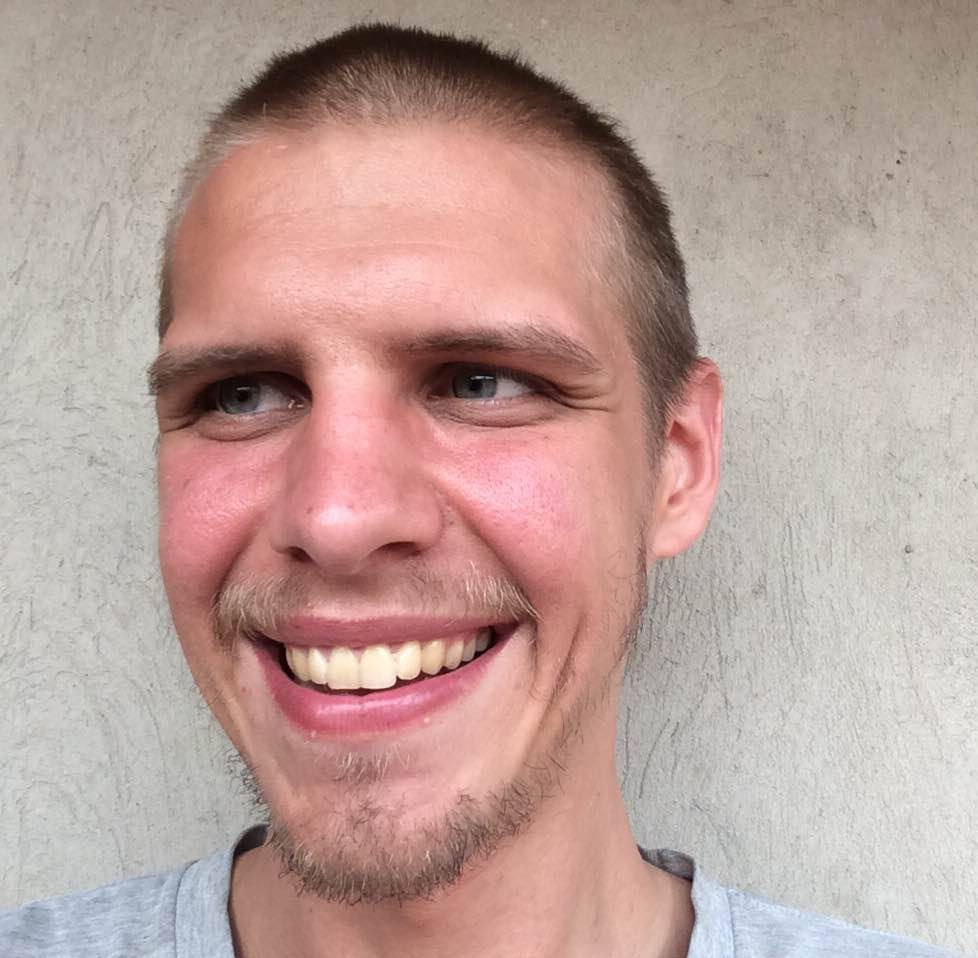 Phil Wilmot is husband to Suzan Abong Wilmot. Together, they co-founded Solidarity Uganda with a group of Ugandan activists. The organization aims to train social change and environmental advocacy groups throughout Uganda in the skills, methods, and concepts of nonviolence. Phil and Suzan reside in Lira, Uganda with their daughter Aceng Nadia. They have been working with a number of campaigns and movements around the country, including informal transport workers, farmers, urban activists, and others to teach nonviolent resistance, strategies and tactics and to build people’s power to improve people’s lives in local communities in Uganda. He has trained hundreds of people in nonviolent strategy and movement building, especially in East Africa. He writes for Waging Nonviolence and Mobilisation Lab and recently published a book on his 2014 detainment in a Ugandan jail called, A Wolf Dressed in Sheepskin: A White Guy’s Dilemma in a Ugandan Jail Cell. He is also an advisor for Beautiful Rising and one of the LIN 2016 Fellows, along with Suzan Abong Wilmot and Daniel Tulibagenyi.
Phil Wilmot is husband to Suzan Abong Wilmot. Together, they co-founded Solidarity Uganda with a group of Ugandan activists. The organization aims to train social change and environmental advocacy groups throughout Uganda in the skills, methods, and concepts of nonviolence. Phil and Suzan reside in Lira, Uganda with their daughter Aceng Nadia. They have been working with a number of campaigns and movements around the country, including informal transport workers, farmers, urban activists, and others to teach nonviolent resistance, strategies and tactics and to build people’s power to improve people’s lives in local communities in Uganda. He has trained hundreds of people in nonviolent strategy and movement building, especially in East Africa. He writes for Waging Nonviolence and Mobilisation Lab and recently published a book on his 2014 detainment in a Ugandan jail called, A Wolf Dressed in Sheepskin: A White Guy’s Dilemma in a Ugandan Jail Cell. He is also an advisor for Beautiful Rising and one of the LIN 2016 Fellows, along with Suzan Abong Wilmot and Daniel Tulibagenyi.
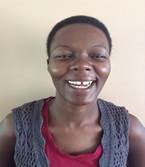 Scovia Arinaitwe is a director and trainer of Solidarity Uganda. An organizer with the Women’s Movement and The Jobless Brotherhood, Scovia works with people of all social classes in Kampala. She ran an activist-centered rapid response system for political prisoners which also functioned to build bridges between movements.
Scovia Arinaitwe is a director and trainer of Solidarity Uganda. An organizer with the Women’s Movement and The Jobless Brotherhood, Scovia works with people of all social classes in Kampala. She ran an activist-centered rapid response system for political prisoners which also functioned to build bridges between movements.
Nonviolent Direct Action: A Course Taught by ICNC High School Curriculum Fellow 2016
Elizabeth “Betsy” Cepparulo, an ICNC High School Curriculum Fellow, developed, offered and moderated a course on the introduction to civil resistance in 2016 as part of the ICNC High School Curriculum Fellowship.
The information featured below was submitted as part of the fellowship requirement that, among others, included creating a detailed course proposal, developing curriculum content, designing evaluation tools, selecting participants and extensive moderation throughout the course.
Learn more by clicking on the topic links:
Go back to the main ICNC High School Curriculum Fellowship page.
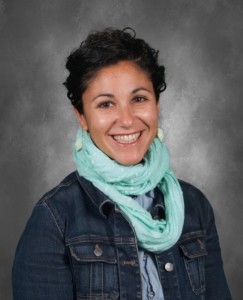 Elizabeth “Betsy” Cepparulo is a History teacher at Wilmington Friends School, in Wilmington, Delaware. She specializes in a course called Global Peace and Justice, which teaches world history through topics such as women’s rights, civil disobedience, social justice, and peace in a time of conflict. Prior to teaching, Betsy was an attorney in Pennsylvania for four years, focusing mainly on family law and criminal defense. She has her BA from Skidmore College, her JD from Temple University, and her Masters in Education Policy and Leadership from Stanford University.
Elizabeth “Betsy” Cepparulo is a History teacher at Wilmington Friends School, in Wilmington, Delaware. She specializes in a course called Global Peace and Justice, which teaches world history through topics such as women’s rights, civil disobedience, social justice, and peace in a time of conflict. Prior to teaching, Betsy was an attorney in Pennsylvania for four years, focusing mainly on family law and criminal defense. She has her BA from Skidmore College, her JD from Temple University, and her Masters in Education Policy and Leadership from Stanford University.
Course Title: Nonviolent Direct Action
High School: Wilmington Friends School, Delaware
Abstract: In this course, students will explore civil resistance movements from both practical and personal standpoints. Practically, students will learn concrete steps to engaging in a nonviolent direct action (NVDA) campaign. This will differentiate civil resistance and NVDA from passivity, which is sometimes confused with peaceful resistance. Personally, students will study Gandhi and Indian Independence, James Lawson and MLK Jr with the Civil Rights movement, and finally Colombian civil resistance in the face of violence. Students will write their own NVDA plans, contemplate a “peace force,” and explore the pros and cons of fighting violence and oppression with active peace. In the end, students will be able to articulate concrete steps and nuanced perspectives in ending conflict with civil resistance.
Learning Gains Survey Results:
The Learning Gains Survey aims to measure knowledge gains among course participants. Participants take the Pre-Seminar Survey at the beginning of the course and take an identical survey (Post-Seminar) at the end of the course. Included below is the graphed responses to the questions from the Pre-Seminar and Post-Seminar Surveys. In general, the surveys illustrate a positive trend in the knowledge gains achieved by participants as a result of the course.
Learning Gains Survey Answer Key:
The following questions were answered on a scale of 1-5, where:
1= None 2 = A little bit 3= adequate 4= Good 5 = Excellent
Learning Gains Survey Questions:
- Rate your level of familiarity with nonviolent direct action as a specific strategy for achieving change
- Rate your level of familiarity with the definition of Nonviolent direct action
- Rate your level of familiarity with Gandhi’s methodology for achieving nonviolent civil resistance
- Rate your level of familiarity with India’s struggle for independence
- Rate your level of familiarity with James Lawson’s techniques for nonviolent civil resistance
- Rate your level of familiarity with Martin Luther King, Jr’s techniques for nonviolent civil resistance, specifically his four-step plan
- Rate your level of familiarity with nonviolent direct action during the civil rights movement in the American south
- Rate your level of familiarity with using civil resistance against violent groups
- Rate your level of familiarity with the “comunidades de paz,” in Colombia and their methods of civil resistance
- Rate your level of familiarity with “peace forces” as an alternative for a military army
- Rate your level of interest in nonviolent civil resistance as an alternative to war
- Rate your likelihood of using nonviolent tactics in the future to create change that you believe in
Learning Gains Survey Results Explained:
As you can see in the graph above, the majority of students reported having low levels of familiarity with various civil resistance struggles and tactics when completing the Pre-Seminar LGS at the start of the course. However, by the time students completed the Post-Seminar LGS, at the end of the course, they reported much higher levels of familiarity with each struggle listed and general civil resistance knowledge. The overall civil resistance knowledge level of the students more than doubled as a result of their experience in this course.
Go back to the main ICNC High School Curriculum Fellowship page.
Philippines’ president Rodrigo Duterte reignites martial law fears
French Guiana: Launches from Kourou temporarily suspended by social unrest
U.K.: Solidarity with Europe as 100,000 march on parliament
Venezuela: Ranks of political prisoners grow as democracy ebbs
Hungary: Thousands march in support of university in Budapest
Transforming Women through Civil Resistance and Nonviolent Activism
This “Voices from the Field” webinar occurred on Wednesday, May 10 from 10-11:30 a.m. EST.
Webinar summary:
This interactive panel will discuss women’s movements fighting for better livelihoods, ending violence against women, and supporting inclusion and rights in India. Participants will learn about current majority-women campaigns and movements in West Bengal and Bhopal involving thousands. Discussants will share insightful observations about the challenges of being a solidarity bridge-builder between grassroots movements and global support networks, as well as about the types of tactics and strategic impact that women have on movements, including their leadership and planning.
Presenters:
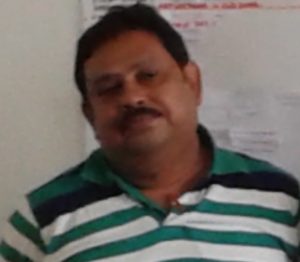 Arnab Chakraborty works at a national NGO called PRADAN (www.pradan.net) with and for extremely poor women to create robust community organizations to stimulate change in each member who individually feels powerless, each with a deeply limiting sense of self-efficacy. He helps them create an environment of togetherness and oneness, lending support to and reinforcing each other and more easily and readily learn from each other. These women working together creates synergy, a social capital, a social and political space for them to change the distribution of power in society. All these involves “enabling” women to take charge of their life around the economic and socio-political realm. This is to ensure that each poor woman is supported to develop livelihood options enhancing her control over economic resources; effectively participates in local governance systems and builds gender-sensitive accountability processes; negotiates intra-family issues that hinder equal access to rights for women and girls, including addressing domestic violence and access rights and entitlements enshrined in the Constitution. Arnab is also a 2016 LIN Fellowship member and received a small grant to develop and implement training on nonviolent action and resistance to Adhivasi women in West Bengal. The grant supported several TOT workshops and training and action plans distributed to many thousands of women who began their public nonviolent resistance in March 8 on International Women’s Day.
Arnab Chakraborty works at a national NGO called PRADAN (www.pradan.net) with and for extremely poor women to create robust community organizations to stimulate change in each member who individually feels powerless, each with a deeply limiting sense of self-efficacy. He helps them create an environment of togetherness and oneness, lending support to and reinforcing each other and more easily and readily learn from each other. These women working together creates synergy, a social capital, a social and political space for them to change the distribution of power in society. All these involves “enabling” women to take charge of their life around the economic and socio-political realm. This is to ensure that each poor woman is supported to develop livelihood options enhancing her control over economic resources; effectively participates in local governance systems and builds gender-sensitive accountability processes; negotiates intra-family issues that hinder equal access to rights for women and girls, including addressing domestic violence and access rights and entitlements enshrined in the Constitution. Arnab is also a 2016 LIN Fellowship member and received a small grant to develop and implement training on nonviolent action and resistance to Adhivasi women in West Bengal. The grant supported several TOT workshops and training and action plans distributed to many thousands of women who began their public nonviolent resistance in March 8 on International Women’s Day.
 Reena Shadaan is a doctoral candidate in the Faculty of Environmental Studies at York University (Toronto, Canada). Her work explores gender and environmental racism, environmental health, and reproductive justice. Since 2013, she has been Coordinating Committee member of the North American solidarity tier of the International Campaign for Justice in Bhopal (ICJB) – an environmental justice and corporate accountability campaign that is led by survivors of the 1984 Bhopal gas disaster, and seeks justice for the ongoing disaster in Bhopal, India.
Reena Shadaan is a doctoral candidate in the Faculty of Environmental Studies at York University (Toronto, Canada). Her work explores gender and environmental racism, environmental health, and reproductive justice. Since 2013, she has been Coordinating Committee member of the North American solidarity tier of the International Campaign for Justice in Bhopal (ICJB) – an environmental justice and corporate accountability campaign that is led by survivors of the 1984 Bhopal gas disaster, and seeks justice for the ongoing disaster in Bhopal, India.
Struggling for Livelihood, Dignity, and Free and Fair Elections in Africa: Spotlight on Kenya
This “Voices from the Field” webinar is scheduled for Thursday, October 5 from 10am to 11:30am ET.
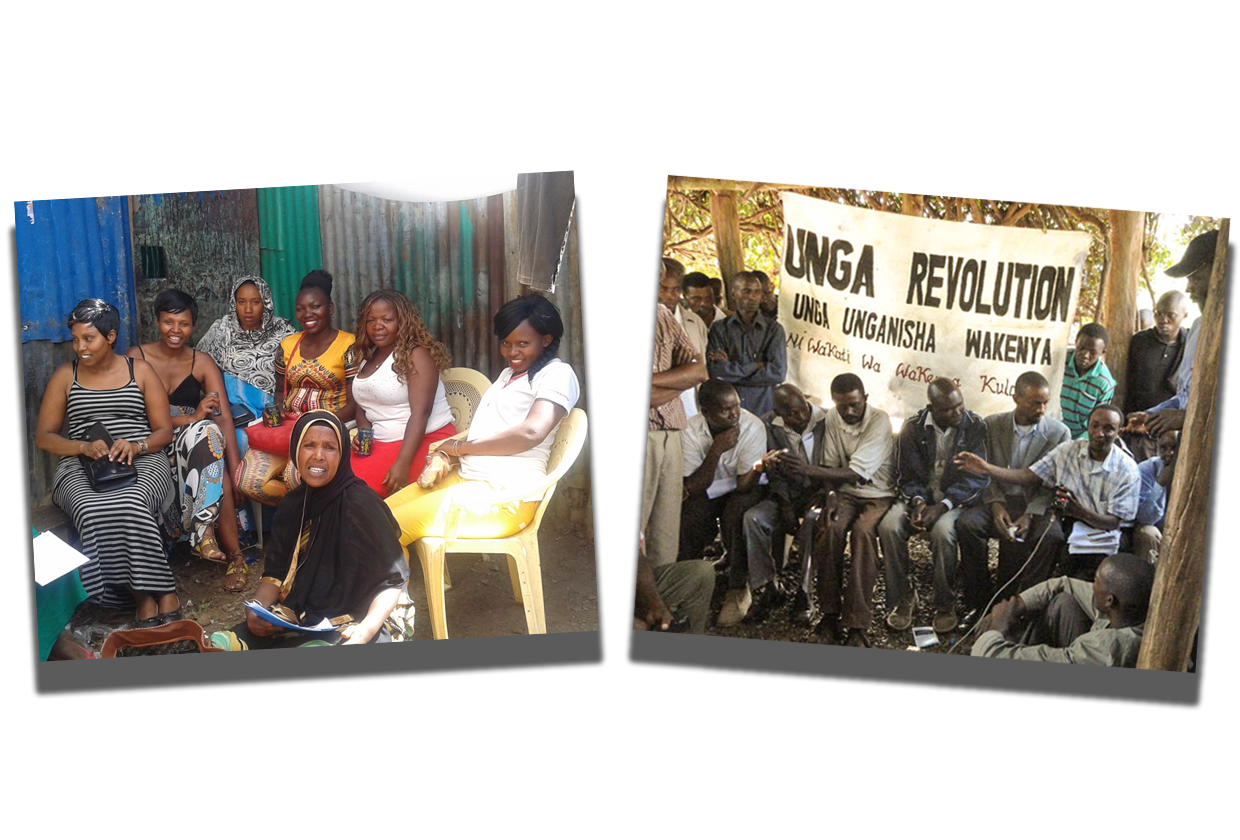 Webinar summary:
Webinar summary:
With the recent presidential elections nullified by the Supreme Court, Kenyans are struggling for free, fair and verifiable elections. Without these, the risk of violence rises. This webinar will focus on grassroots coalitions like Kenyans for Tax Justice that are using strategic nonviolent action for a variety of goals: to ensure free elections; to end extra-judicial killings and violence against women and youth; and to achieve basic human rights enshrined in the Kenyan constitution but not realized for most of the country’s population. Many citizens in countries around the world, including democracies and those with more authoritarian governments, are grappling with the same challenges. The webinar will offer practical strategies, insights, and lessons learned that are relevant for activists and organizers struggling for justice in Africa and around the world.
Click here to register
Presenters:
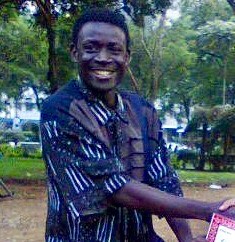 Julius Okoth is a social justice crusader and currently coordinator of Kenyans for Tax Justice movement. He believes in social inclusion, respect for human rights and effective participation of all citizens in democratic and development processes and in governance of public affairs. Together with his fellow citizens at the grassroots, he has been advocating for a system of Kenya’s government that is representative, by demanding national or county government to do something or stop them doing something for the sake of fair, just and equitable Kenyan society directed towards fruitful relationship among human beings and between humans and the Earth.
Julius Okoth is a social justice crusader and currently coordinator of Kenyans for Tax Justice movement. He believes in social inclusion, respect for human rights and effective participation of all citizens in democratic and development processes and in governance of public affairs. Together with his fellow citizens at the grassroots, he has been advocating for a system of Kenya’s government that is representative, by demanding national or county government to do something or stop them doing something for the sake of fair, just and equitable Kenyan society directed towards fruitful relationship among human beings and between humans and the Earth.
Julius and Kenyans for Tax Justice received a LIN 2016 Fellowship and have successfully developed a number of trainers and experts on nonviolent resistance that are spreading the knowledge throughout Kenya in preparation for the August 2017 elections. They are seeking to work with communities and interested parties to oppose the Value Added Tax (VAT) that has recently been imposed on school textbooks, a move which has hit the poorest of the poor school-going children the hardest. The project will work with communities to ensure that these new taxes are abolished, and education is made accessible to all – using nonviolent means of resistance.
It is instructive to note that in Africa, only Kenya and South Africa levy Value Added Tax on school textbooks. This has made books very expensive, considering that majority of Kenyans live below the poverty line. This effort seeks to ensure that books are affordable, and education is accessible to all. They also work on broader rights related to basic needs, violence against women, and human rights.
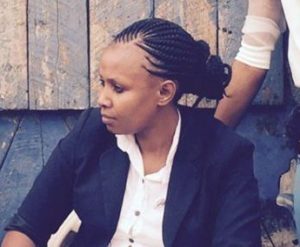 Ruth Mumbi is a social justice activist, a community organiser and a strong defender of human/women’s rights. She was born and brought up in the informal settlement of Mathare, which is a collection of slums, and the second largest informal settlement in Nairobi, the capital city of Kenya. Ruth is the founder and current National Coordinator of Bunge la Wamama, a women’s chapter of Bunge la Mwananchi, a movement that conducts strong advocacy and campaigning on issues of social justice and accountability in different parts of Kenya.
Ruth Mumbi is a social justice activist, a community organiser and a strong defender of human/women’s rights. She was born and brought up in the informal settlement of Mathare, which is a collection of slums, and the second largest informal settlement in Nairobi, the capital city of Kenya. Ruth is the founder and current National Coordinator of Bunge la Wamama, a women’s chapter of Bunge la Mwananchi, a movement that conducts strong advocacy and campaigning on issues of social justice and accountability in different parts of Kenya.
Bunge la Wamama is also a member of the Kenyans for Tax Justice Coalition. Ruth Mumbi was a finalist for the 2013 Front Line Award for Human Rights Defenders at Risk and is a recognized women human rights defender in Kenya that works with grassroots communities. She facilitates community dialogue on social justice issues by empowering my community with knowledge, mobilizing them to expose malpractices by state officers, condemn human rights violations and demand accountability from the government.
Ruth also guides the women in the informal settlements on how to make demands on state agencies, including demands for the arrest of persons who have committed sexual and gender based violence (SGBV) and where police failed to act; and demand justice for the victims and accountability from the police, by linking up victims of SGBV to human rights organisations where they can be offered free legal representation in court. Ruth attended the Centre for Applied Human Rights at the University of York, UK in 2014. Her position as a community leader has led to harassment, attacks, and ongoing threats.
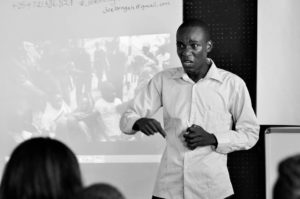 Sakwa Makanda is a social justice activist in Kenya and a leader in the Kenyans for Tax Justice western chapter. His responsibilities include training and capacity building for residents who are mostly peasant farmers, boda boda drivers, and community leaders involved in building nonviolent social movements. In the past, he has been involved in building the unga revolution, a nonviolent campaign advocating for the reduction of prices for basic foodstuffs (unga is a staple of the local population’s diet); occupation of the Kenyan parliament fighting for the reduction of MPs’ salaries; and organizing the Bunga La Mwanchi (an umbrella coalition of a nonviolent movement), and Kenyans for Tax Justice chapters across the country. The goals of these mobilizations are freedom of association and speech. In the course of these struggles, many activists have been arrested, including Sakwa who has appeared in court five times on trumped up charges.
Sakwa Makanda is a social justice activist in Kenya and a leader in the Kenyans for Tax Justice western chapter. His responsibilities include training and capacity building for residents who are mostly peasant farmers, boda boda drivers, and community leaders involved in building nonviolent social movements. In the past, he has been involved in building the unga revolution, a nonviolent campaign advocating for the reduction of prices for basic foodstuffs (unga is a staple of the local population’s diet); occupation of the Kenyan parliament fighting for the reduction of MPs’ salaries; and organizing the Bunga La Mwanchi (an umbrella coalition of a nonviolent movement), and Kenyans for Tax Justice chapters across the country. The goals of these mobilizations are freedom of association and speech. In the course of these struggles, many activists have been arrested, including Sakwa who has appeared in court five times on trumped up charges.
Curriculum Fellowships for Online Courses
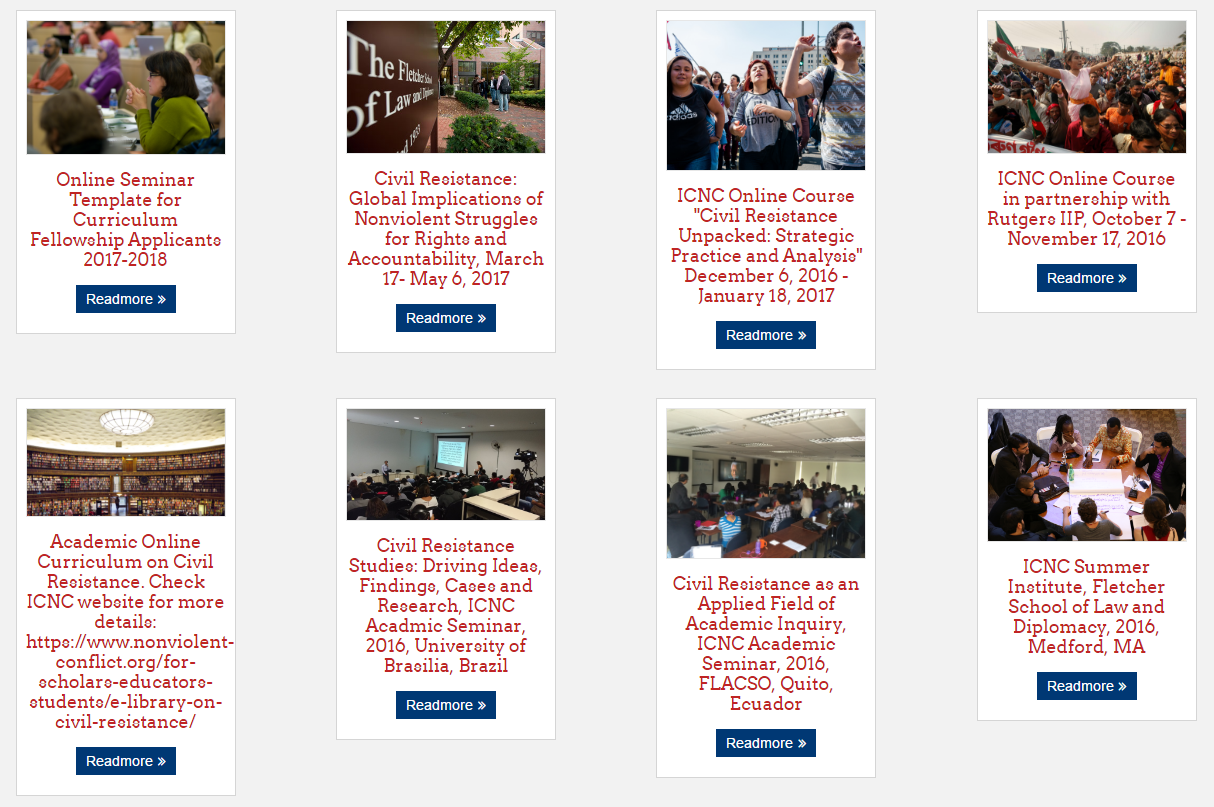 Applicants interested in developing and teaching online seminars
Applicants interested in developing and teaching online seminars
ICNC is strongly interested in supporting the expansion of online teaching on civil resistance, particularly in situations where it is difficult or impossible to develop a formal classroom-based course at a local academic institution. In such cases, ICNC Curriculum Fellowships aims to encourage and support interested instructors to set up an online seminar on civil resistance and offer it to a select group of interested learners.
Interested also in teaching classroom-based courses? Check this curriculum fellowship for classroom-based courses.
Online seminar consists of a minimum of 5 weekly sessions on civil resistance where participants are asked to review relevant session notes, videos, and readings and then engage in forum discussions moderated by a seminar instructor.
The curriculum fellowship is designed to plant a seed for continued education on civil resistance. Applicants should therefore be able to demonstrate that their curriculum is part of a long-term, sustainable teaching plan, as opposed to being a one-off course offering.
Application deadline: April 30, 2017.
Click the links to learn more:
- Eligibility
- Award
- Fellowship Components
- Recommended Resources
- How to Apply
- Fellowship Distribution
- Past Curriculum Fellows
Eligibility
- Scholars, and instructors from colleges and universities around the world who are interested in expanding their institutions’ existing curriculum to cover civil resistance.
- Educators and trainers who might be loosely affiliated with academic institutions at home or abroad but have academic-based training or pedagogical and teaching experience, particularly in regions and countries with restrictive civic spaces or conflicts.
Award Details
In 2017, up to seven curriculum fellowships, each in the amount of $1,300, will be offered on open, merit and competitive bases to qualified applicants to develop:
- an online seminar on civil resistance that will be offered to students and interested learners from applicant’s university, town, district, country or the region. The online seminar would be given through the designated ICNC’s online platform.
In addition to a curriculum fellowship grant, awardees will receive a package with academic books and documentaries on civil resistance. ICNC provides these resources free of charge as part of its curriculum fellowship package to help its fellows develop the content on and teach civil resistance.
Teaching for 2017/2018 ICNC Curriculum Fellowships is expected to take place either in Summer, Fall 2017 or Winter, Spring 2018.
As part of the fellowship it is expected that:
a. Perspective applicant will access and review the Curriculum Fellowship Template for an Online Seminar [enrollment key: Onlinetemplate2017]. Once selected, fellow will be expected to develop a similar online seminar, though customized to fit their own teaching environment, learning objectives and audience.
b. Limited technical assistance from ICNC will be available to help fellows learn basic ICNC Moodle or Open edX functionality to be able to build their own courses.
c. fellow is expected to develop original content for and run an online seminar
d. proposal for the online seminar will, at minimum, include teachable content (such as audio/videos, readings, exercises, forum discussions) on:
- what civil resistance is, including prevailing misconceptions
- historical record and effectiveness of civil resistance
- strategies and tactics of civil resistance
- dynamics of civil resistance including but not limited to the phenomenon of backfire, defections, movement mobilization, sustainability and/or tactical innovation and sequencing
e. fellow moderates the course online in its different forums where learners comment on the materials reviewed and exchange ideas about specific topics and respond to moderator’s questions.
f. fellow interacts with learners via regular, live video-conferencing and creative online content (e.g. case studies/exercises) to ensure learners’ active engagement and to reduce attrition from the online course once it begins
g. no less than 10 and no more than 20 students per fellow are actively engaged throughout the online seminar to ensure effective course moderation and supervision
h. materials on civil resistance that a fellow selects, develops and uploads into online seminar can be in language other than English (check recommended resources) though the initial curriculum proposal for ICNC consideration must be in English
i. forum conversations and moderation can be conducted in a language other than English
j. fellow prepares and shares with ICNC bi-weekly English-language reports on the progress of the online seminar, including participants’ interactions in discussion forums and their work on seminar assignments
k. fellow is encouraged to arrange an online guest speaker who will present on a selected topic on civil resistance
l. fellow develops online evaluation instrument to be used to assess progress in students’ learning about civil resistance
- template of a pre-seminar learning gains survey (distributed prior to the start of the seminar)
- template of a post-seminar learning gains survey (distributed at the end of the seminar)
m. fellow develops online final course evaluation to solicit students’ feedback on the course content on civil resistance
Review:
- template of a final course evaluation
n. fellow submits a final report to ICNC soon after the course or curriculum unit ends. The report will summarize content on civil resistance delivered, including any innovative teaching tools used, completed assignments, aggregate results from the students’ learning gains surveys, results from the final evaluation and general lessons learnt
How to Apply
To be considered applicants should review ICNC recommended list of resources, fill out the online application form, submit CV and curriculum proposal, and other information as requested.
APPLY for the Online Seminar Fellowship
The curriculum proposal should include a detailed description of the content for at least five weekly-based online sessions on civil resistance where participants are asked to review a relevant session description, videos, and readings and engage in forum discussions moderated by a seminar instructor. Once the applicant is selected and becomes familiar with the ICNC online learning management system, s/he will set up the proposed curriculum (with any requested modifications) on the designed space in the ICNC online learning platform.
Application deadline: April 30, 2017 for online courses that will be offered in Summer or Fall 2017 or Winter and Spring 2018.
Recommended List of Resources for Curriculum Proposal Development
In developing the curriculum proposal on civil resistance for either a classroom-based course or online seminar, applicants are strongly encouraged to review the ICNC universal e-classroom for ideas on curriculum content as well as sample syllabi. In addition, applicants may wish to consider integrating into the sessions on civil resistance the following resources:
- ICNC translations: if a proposed course is taught in a language different than English, a fellow will be expected to incorporate translations of civil resistance literature available in the ICNC library, which houses materials on civil resistance in 55 languages.
- A Force More Powerful, 2000 documentary
- Bringing Down a Dictator, 2001 documentary
- Orange Revolution, 2007 documentary
- Erica Chenoweth and Maria Stephan, Why Civil Resistance Works. The Strategic Logic of Nonviolent Conflict (New York: Columbia University Press, 2011)
- Maciej Bartkowski, ed. Recovering Nonviolent History. Civil Resistance in Liberation Struggles (Boulder, CO: Lynne Rienner Publishers, 2013)
- Peter Ackerman, and Jack DuVall, A Force More Powerful: A Century of Nonviolent Conflict (New York: Macmillan, 2000)
- Shaazka Beyerle, Curtailing Corruption. People Power for Accountability and Justice (Boulder, CO: Lynne Rienner Publishers, 2014)
- Veronique Dudouet, ed. Civil Resistance and Conflict Transformation. Transition from Armed to Nonviolent Struggle (London: Routledge, 2015)
- A Diplomat’s Handbook for Democracy Development Support
Check also Selected Bibliography on Civil Resistance (2016)
Applicants’ curriculum proposal – to be submitted as part of the application process – is expected to include a list of resources on civil resistance that an applicant plans to incorporate into an online seminar and is encouraged to identify a potential guest speaker suitable for a proposed civil resistance topic.
Fellowship Distribution
The fellowship grants will be disbursed in two equal installments. The first installment will be made after the course begins, the student enrollment is confirmed and the syllabus with an online civil resistance content has been satisfactorily reviewed by ICNC. The second installment will be made after the online seminar ends and ICNC receives fellow’s final report and results of students’ evaluations pertaining to their learning on civil resistance and course assessment.
Past Curriculum Fellows
2016 Curriculum Fellows
2015 Curriculum Fellows
2014 Curriculum Fellows
Curriculum Fellowships for Classroom-based Courses
Applicants interested in developing and teaching classroom-based courses
ICNC is interested in promoting teaching of civil resistance in academic institutions that have not yet developed coursework on the subject. We especially encourage applications from candidates who do not currently teach civil resistance at the institutions where they want to develop the new curriculum unit. We also prefer that the institutions have at present no courses on civil resistance offered as part of the departmental, school, or university curriculum.
Interested also in teaching online seminars? Check the curriculum fellowship for online courses.
Applicants are expected to develop a curriculum unit on civil resistance that, at minimum, covers five 90-minute sessions over the course of minimum of 5 weeks as part of the undergraduate or graduate course and consists of either instructor guides, readings, modules, exercises, or simulations directly relevant to the field of civil resistance.
The curriculum fellowship is designed to plant a seed for continued education on civil resistance. Applicants should therefore be able to demonstrate that their curriculum is part of a long-term, sustainable teaching plan, as opposed to being a one-off course offering.
Application deadline: April 30, 2017.
Click the links to learn more:
- Eligibility
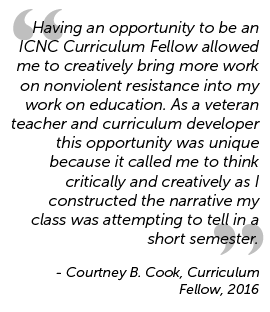
- Award
- Fellowship Components
- How to Apply
- Recommended Resources
- Fellowship Distribution
- Past Curriculum Fellows
Eligibility
- Scholars, and instructors from colleges and universities around the world who are interested in expanding their institutions’ existing curriculum to cover civil resistance.
- Educators and trainers who might be loosely affiliated with academic institutions at home or abroad but have academic-based training or pedagogical and teaching experience, particularly in regions and countries with restrictive civic spaces or conflicts.
Award Details
In 2017, up to seven curriculum fellowships, each in the amount of $1,300, will be offered on open, merit and competitive bases to qualified applicants to develop:
- a curriculum unit on civil resistance that will be offered as a self-standing, elective or mandatory, course at the applicant’s home university
or
- a curriculum unit on civil resistance that will be incorporated into the existing, elective or mandatory, course at the applicant’s home university
In addition to a curriculum fellowship grant, awardees will receive a package with academic books and documentaries on civil resistance. ICNC provides these resources free of charge as part of its curriculum fellowship package to help its fellows develop the content on and teach civil resistance.
Teaching for 2017/2018 ICNC Curriculum Fellowships is expected to take place either in Summer, Fall 2017 or Winter, Spring 2018.
As part of the fellowship it is expected that:
a. fellow develops a full-fledged course syllabus that includes a curriculum unit on civil resistance. A unit on civil resistance covers minimum five 90-minute sessions over the period of minimum of 5 weeks.
b. sessions on civil resistance that are part of the developed curriculum unit will, at minimum, analyze and explain to students:
- what civil resistance is, prevailing misconceptions
- historical record and effectiveness of civil resistance
- strategies and tactics of civil resistance
- dynamics of civil resistance including but not limited to the phenomenon of backfire, defections, movement mobilization, sustainability or tactical innovation and sequencing
c. no less than 10 students will register and attend the course
d. course syllabus, assignments and assessment materials are to be developed in English, though the course itself can be conducted in a different language
e. fellow hosts at least one guest speaker that will present on a selected topic on civil resistance
f. fellow develops online evaluation instrument to be used to assess progress in students’ learning about civil resistance
- template of a pre-seminar learning gains survey (distributed prior to the start of the seminar)
- template of a post-seminar learning gains survey (distributed at the end of the seminar)
g. fellow develops online final course evaluation to solicit students’ feedback on the course content on civil resistance
Review:
- template of the final course evaluation
h. fellow submits a final report to ICNC soon after the course or curriculum unit ends. The report will summarize content on civil resistance delivered, including any innovative teaching tools used, information on the guest speaker talk, aggregate results from the students’ learning gains surveys, results from the final evaluation and general lessons learnt
i. students’ feedback/evaluation and recommendation for improvements
j. fellow selects and submits to ICNC- with students permission –one/two outstanding pieces of written or audio/video work on civil resistance done as part of the course
To be considered applicants should review ICNC recommended list of resources, fill out the online application form, submit CV and curriculum proposal, and other information as requested.
How to Apply
To be considered applicants should fill out the online application form, submit their CV and curriculum proposal, and other information as requested.
APPLY for the Classroom-Based Fellowship
The curriculum proposal should include a detailed description of the content of at least five 90-minute sessions that will be taught for a minimum of 5 weeks. Each proposed session must include a brief description of the topic covered, as well as a list of assigned readings on civil resistance. If applicable, the applicant should also attach a revised syllabus that will include the newly proposed sessions on civil resistance and explain how these new topics relate to the existing course material. Finally, the application will identify the course number, its elective or mandatory status, departmental/institutional affiliation for the course, average number of enrolled students, and the semester when it will be offered.
Application deadline: April 30, 2017 for courses that will be offered in Summer, Fall 2017 or Winter, Spring 2018
Recommended List of Resources for Curriculum Proposal Development
In developing the curriculum proposal on civil resistance for a classroom-based course, applicants are strongly encouraged to review the ICNC universal e-classroom for ideas on curriculum content as well as sample syllabi. In addition, applicants may wish to consider integrating into the sessions on civil resistance the following resources:
- ICNC translations: if a proposed course is taught in a language different than English, a fellow will be expected to incorporate translations of civil resistance literature available in the ICNC library, which houses materials on civil resistance in 55 languages
- A Force More Powerful, 2000 documentary
- Bringing Down a Dictator, 2001 documentary
- Orange Revolution, 2007 documentary
- Erica Chenoweth and Maria Stephan, Why Civil Resistance Works. The Strategic Logic of Nonviolent Conflict (New York: Columbia University Press, 2011)
- Maciej Bartkowski, ed. Recovering Nonviolent History. Civil Resistance in Liberation Struggles (Boulder, CO: Lynne Rienner Publishers, 2013)
- Peter Ackerman, and Jack DuVall, A Force More Powerful: A Century of Nonviolent Conflict (New York: Macmillan, 2000)
- Shaazka Beyerle, Curtailing Corruption. People Power for Accountability and Justice (Boulder, CO: Lynne Rienner Publishers, 2014)
- Veronique Dudouet, ed. Civil Resistance and Conflict Transformation. Transition from Armed to Nonviolent Struggle (London: Routledge, 2015)
- A Diplomat’s Handbook for Democracy Development Support
Check also Selected Bibliography on Civil Resistance (2016)
Applicants’ curriculum proposal – to be submitted as part of the application process – is expected to include a list of resources on civil resistance that an applicant plans to incorporate into a classroom-based and identify a potential guest speaker suitable for a proposed civil resistance topic.
Fellowship Distribution
The fellowship grants will be disbursed in two equal installments. The first installment will be made after the course begins, the student enrollment is confirmed and the syllabus with a civil resistance component has been satisfactorily reviewed by ICNC. The second installment will be made after the classroom-based course ends and ICNC receives fellow’s final report and results of students’ evaluations pertaining to their learning on civil resistance and course assessment.
Past Curriculum Fellows
2016 Curriculum Fellows
2015 Curriculum Fellows
2014 Curriculum Fellows

